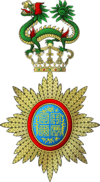Quách Tấn Có
His Excellency Quách Tấn Có | |
|---|---|
 Quách Tấn Có in 1985, photographed by fashion magazine Cosmopolis | |
| 14th Prime Minister of Quenmin | |
| In office 23 September 1980 – 14 October 1990 | |
| Monarch | Lành Chinh |
| Deputy | Đỗ Kiên Cường |
| Preceded by | Lý Thái Duy |
| Succeeded by | Chu Thuận Thành |
| Minister of Economic Oversight, Planning, and Investment | |
| In office 28 June 1975 – 12 September 1980 | |
| Monarch | Lành Chinh |
| Prime Minister | Lý Thái Duy |
| Deputy | Giang Ðinh Lộc |
| First Secretary of the People's Democratic Party | |
| In office 13 February 1970 – 16 June 1975 | |
| Preceded by | Vưu Minh Hiếu |
| Succeeded by | Hoàng Quảng Ðạt |
| Personal details | |
| Born | 15 February 1936 Hai An, Nảy Thịt Province, Quenmin |
| Political party | People's Democratic Party |
| Other political affiliations | Civic League |
| Spouse | Bùi Minh Tuyết |
| Children | |
| Relatives | Quách Tấn Vũ (brother) |
| Alma mater | Nảy Thịt University (BA) |
| Occupation |
|
| Cabinet | Quách Tấn Có cabinet |
| Awards | See below |
| History of the Royal and Imperial Democratic Realm of Quenmin |
|---|
 |
| 1947 – 1952 |
| 1952 – 1975 |
| 1975 – 1980 |
| 1980 – 1991 |
| 1991 – 1993 |
| 1993 – 2016 |
| 2016 – present |
Quách Tấn Có MRNM HNB HBLRC KGCQ (15 February 1944), popularly recognized as Dandy Quách (Bảnh bao Quách), was the 14th Prime Minister of Quenmin from 23 September 1980 to 14 October 1991. Previously, he served as Minister of Economic Oversight, Planning, and Investment for Lý Thái Duy's government from 1975 to 1980, and First Secretary of the People's Democratic Party. His famous moniker was derived from his flamboyant personality and frequent stylish clothing, making him both idiosyncratic and unique among his peers.
Có was born in 1936 to a working-class family residing in Hai An. After graduating from Nảy Thịt University with a Bachelor of Arts degree in business administration in 1957, he moved to Haigia to work for a medium-sized business. He officially became a member of the People's Democratic Party due to a long-residing inspiration from the political scene under Nguyễn Công Thịnh Bảo to immerse himself in politics. Subsequently, after leaving his career in business, he became First Secretary of the political party, and was a vocal exponent for the national opposition movement against Đỗ Kim Ngữ's govnerment. Then in 1975, as a consequence of Lý Thái Duy elected as Prime Minister, Có was appointed Minister of Economic Oversight, Planning, and Investment, and served for five years. In 1980, Có was nominated by his party for Prime Minister, and was elected on 13 September following the 1980 general election.
Officially taking power on 23 September, Có instituted economic reforms and political initiatives that reversed several aspects of his predecessor's economic policy. His economic stratagem "Quaconomics" advocated for tax reduction, free trade, and a moderate increase in government regulation. Throughout his tenure, his economic policy oversaw a substantial decrease in inflation from 11.4% to 3.7% and an annual growth of 4.4% in real GDP. His first term observed not only economic growth, but included the bolstering of the information technology industry, the establishment of Quenmin's national space program and the launch of Sentrang 1, and an increase of civil rights among ethnicities. His second term would be influenced by foreign policy, with Quenmin playing an increased role in the regional stage. These would include the intervention in the Knichian Civil War and the participation in the crackdown of the neoliberal conspiracy.
After leaving office on 14 October 1990, Có held an 84% approval rating, matching that of Lê Tấn Nguyên in later years. From the amalgam of his personality and his pragmatic leadership, Có's public image remains positively high. This lead to historians marking his tenure the "Quách Tấn Có Era." Moreover, despite a minor recession in 1987, the unprecedented economic prosperity his policies wrought instilled a profound impact on the general public, which gave rise to the term Niềm hạnh phúc ("euphoria") that defined the Quenminese 80s. Evaluations by historians and the general public place him as one of the greatest prime ministers of the nation, and his liberal peers regard him as an icon.
Early life
Early political career
People's Democratic Party and First Secretary
Minister of Economic Oversight, Planning, and Investment
Prime Minister
First term (1980 – 1985)
"Quaconomics" and the economy
National space program
Computers and the IT industry
Second term (1985 – 1990)
1987 Recession
Knichian Civil War
Neoliberal conspiracy
Later life
Honors and awards
National honors
Yellow Kim Khanh of the Ancient, Most Exalted, and Most Auspicious Order of the Pentacolored Dragon
Knight of the Ancient and Most Respected Order of the Five Urns
 Knight Grand Bai of the Most Exalted and Honourable Order of the Blue Tortoise and a Thousand Scrolls
Knight Grand Bai of the Most Exalted and Honourable Order of the Blue Tortoise and a Thousand ScrollsKnight Grand Cross of the Most Admirable Order of the Royal and Imperial Crown of Quenmin